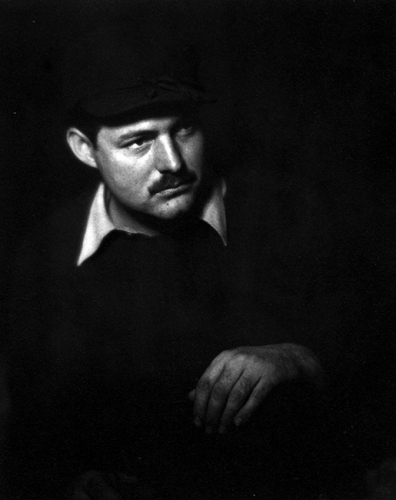Reading Hemingway’s Men Without Women: Glossary and Commentary. By Joseph M. Flora. The Kent State University Press, 189 pages, $24.95.
“Men Without Women.” What a quintessentially Hemingway title. What’s next, “Fighting Bulls and Fishing at the Muscle Man Lodge?” But if you love reading short stories, then you can really only ignore the man for so long.
I was once a member of what Joe Flora says is the Dumb Ox school of thought — the idea that Hemingway was just a big galoot who was too macho for his own good, and a ham-handed writer to boot. But reading Men Without Women, Hemingway’s second major collection of short stories, changed that.
“Hemingway never went to college, and he was a very young man when he wrote these stories,” Flora says. “But he knew a heck of a lot — so much more than he had any right to know.” How to treat a hand shriveled on the front lines of a war, for instance; the precise grip you should maintain on your lance to hold off an angry bull and keep it from skewering your horse; the distinct sound of silkworms chewing. But he also wrote about what matters to all of us — disease, war, death, love.
Flora — a smiling, genteel, scholarly man, over whose desk hangs the biggest deer skull I’ve ever seen — read his first Hemingway story in college. Since then, he’s slowly tracked the man and his legend across the world, starting with Lake Walloon in Michigan’s wild Great North, and from there to Key West, where the descendents of Hemingway’s six-toed cats still slink around his old house by the dozen. Eventually, Flora went all the way to Paris. He and his wife rented a car there, drove the route from The Sun Also Rises to Pamplona and Madrid, and, of course, bought tickets to a bullfight. “You see what Hemingway can do to you?” he says.
Five years ago Flora began working on Reading Hemingway’s Men Without Women: Glossary and Commentary. This is the best kind of guide for the obsessed reader — it stalks every line of every story, details the real-life history of each scene and event, and goes deep into the symbolism that Hemingway couldn’t resist (what did those silkworms mean, anyway?). I’ve taken to keeping Flora’s book next to me when I open my copy of Men Without Women.
When I ask Flora about the book’s title, he shakes his head. “Hemingway never was one,” he says. “He never divorced a wife until the next one was lined up. He grew up surrounded by women. And then we get a book called Men Without Women. This is a man who couldn’t do without women!”
Joseph Flora is interim director of Carolina’s Center for the Study of the American South and a professor of English in the College of Arts and Sciences.


